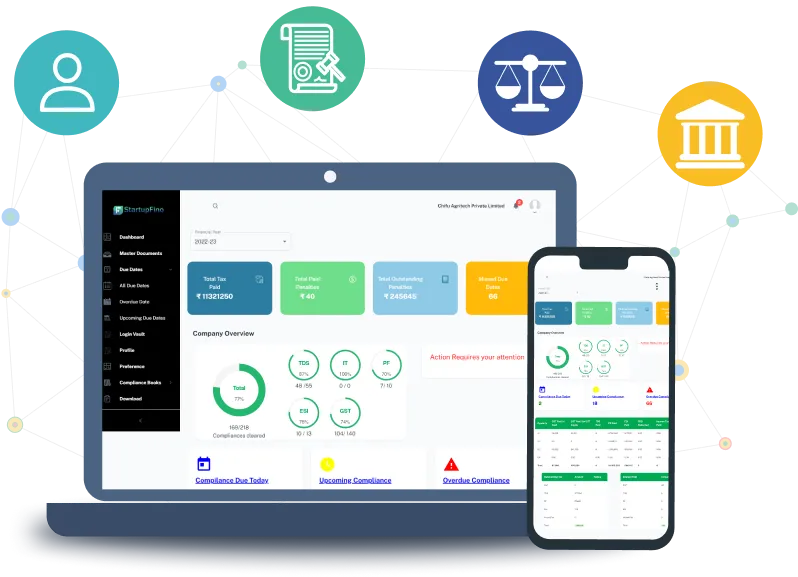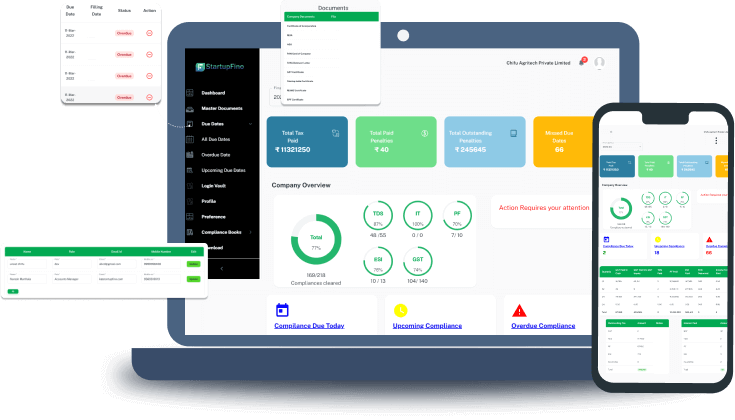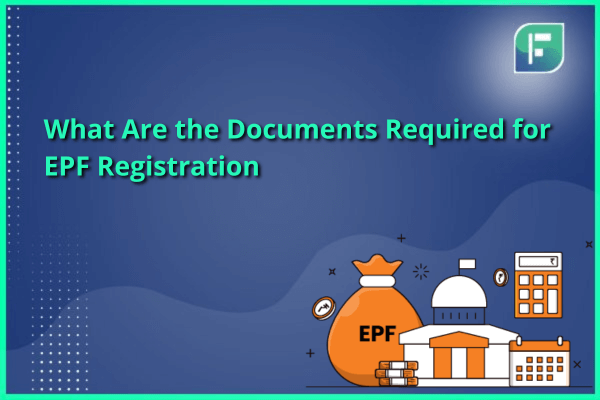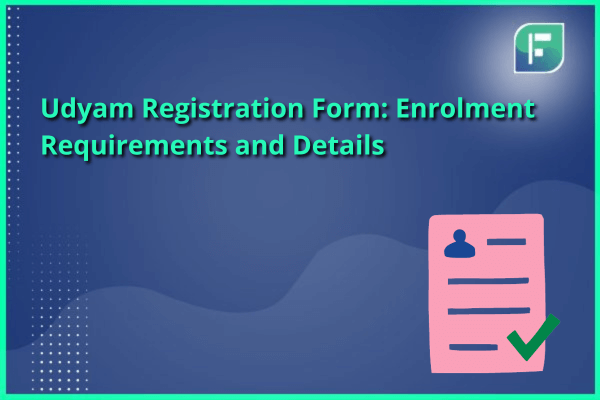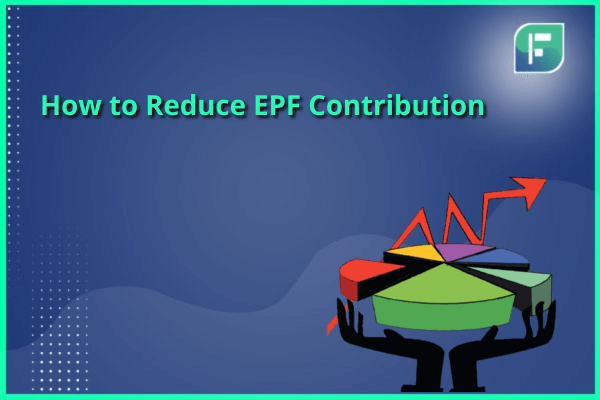The Employees State Insurance Act, 1948, was passed by the Parliament of India to strengthen social security for workers in India. The ESIC compliances are designed to safeguard workers by providing medical treatment for the insured and their dependents, as well as a number of other benefits during a loss of wages or disability. In addition, the scheme provides a pension known as a dependent benefit to the insured person's family members in the event of death or injury as a result of any occupational dangers while at work.
What are the Advantages of ESIC Compliances?
There are many advantages of ESIC compliances for companies, in favour of employers and employees. Some of them are:
Employees covered under ESI Registration and their families enjoy comprehensive medical care and insurance benefits right from the start of their employment as per Section 57 of the Act.
Pregnant women receive maternity benefits for up to twenty-six weeks, with a possible extension of 30 days based on medical advice. To qualify, employers need to contribute their wages for 70 days in the preceding two contribution periods.
Employees who suffer permanent or temporary disablement due to unforeseen circumstances are eligible for specific benefits. Employees with disabilities are entitled to receive 90% of their monthly salaries as disablement benefits.
ESI members can take up to 91 days of sick leave per year with 70% of their monthly wages during the period of absence due to illness.
In case of the unfortunate demise of an employee during their employment, their dependents will receive 90% of the employee's monthly salary.
The family of the deceased employee is eligible for an additional amount of ₹10,000 towards funeral expenses.
If an insured woman or an employee's wife undergoes confinement in a place without medical facilities under the ESI scheme, they can avail confinement expenses.
Employees who experience physical disablement due to employment injury or occupational hazards can avail physical rehabilitation benefits.
Retiring ESI employees or those opting for VRS/ERS receive annual medical care benefits for a payment of Rs. 120.
- Extended Sickness Benefit
ESI members suffering from chronic diseases can avail extended sickness benefits for up to 2 years, once the standard sick leave of 91 days has expired.
ESI Applicability and Coverage
Entities covered under the ESI scheme must obtain ESIC Registration if they employed ten or more employees at any time during the previous year. Insurance deductions apply only to employees earning a monthly income up to Rs. 21,000 (Basic wages + Dearness Allowance) and Rs.25,000/- per month for the Persons with Disability. In some states, ESIC coverage applies to entities with a minimum of 20 or more employees.
ESIC compliances offer various benefits to covered employees, including access to a large network of dispensaries, hospitals and medical clinics for quick medical care. Entities need to secure an ESI registration certificate within 15 days of becoming applicable. However, ESIC regulations differ across states, leading to variations in certain rules and provisions.
Eligibility of Entities Under ESI Registration and ESIC Compliances in India
The following entities are eligible to be covered under ESIC registration and ESIC compliances:
Under the ESI Act of 1948, all types of shops, whether retail or wholesale, fall under the category of entities eligible for ESIC compliances. Shops must meet the required criteria regarding the number of employees as per the regulations in their respective states.
- Cinemas and Movie Theatres
Cinemas and movie theatres are also included in the scope of ESIC compliances. These entertainment establishments need to comply with the prescribed employee threshold to qualify for ESI coverage.
Medical institutions, such as hospitals, clinics and healthcare centres, are eligible for ESIC compliances. Again, it is essential to adhere to the specific criteria set forth by the ESI Act in each state.
Hotels and restaurants offering services without any manufacturing functions can apply for ESI registration and ESIC compliances.
Newspaper establishments are covered under ESIC compliances. As with other entities, the employee count requirements apply.
- Private Educational Institutions
Private educational institutions, such as schools and colleges, are considered eligible entities for ESIC compliances. However, it's important to verify the specific regulations governing such institutions in each state.
- Roadside Motor Transport Establishments
Roadside motor transport establishments are included in the entities covered under ESIC compliances. These establishments also need to meet the specified employee count to be eligible for ESI benefits.
Documents for ESI Registration and ESIC Compliances in India
The documents required for registration under ESI scheme are as follows:
Registration Certificates:
- A registration certificate obtained either under the Factories Act
Business Entity Details:
- Certificate of Registration in case of a Company and Partnership deed in case of a Partnership.
- Memorandum of Association and Articles of Association of the Company.
- PAN Card for Business Entity and also all Employees who are working under him.
- Copy of the Board Resolution.
- List of Directors of the Company.
- List of Shareholders of the Company.
- Copy of the Statement of Bank.
- Copy of the License issued for and in the Name of the Establishment.
- Copy of Electricity Bill.
- Copy of Rent/Lease Agreement.
- A register containing the attendance of the employees.
- A cancelled cheque of the Bank Account of the Company.
- Compensation details of all the employees.
Additional Information for Existing ESIC Registered Employees:
- Employee Insurance Number.
- Date of Appointment.
Additional Information for Employees Not Registered with ESIC:
- Name of employee.
- Name of employee's father/husband.
- Address for reference.
- Date of Birth.
- Date of appointment.
- Details of the nominees (their name, , email id, address, , relationship details, mobile no, etc.).
- Details of Bank Account (Account number, bank name, IFSC code, Branch name, etc.).
- Employer code number.
- Details of the previous employer including-
o Name of employer.
o Employer Insurance number.
o Contact number of employer.
o Address of employer.
Details of Current Employer:
- Employer code number.
- Employer Insurance number.
- Name of employer.
- Address of employer.
- Contact number of employee.
How to Apply for an ESI Card (e-Pehchan Card) in India?
The process to apply for an ESI card for ESIC compliances is given below:
Step 1: Login to ESIC Portal
- Visit the ESIC portal and log in using your username and password.
Step 2: Access e-Pehchan Card Section
- Once logged in, go to the 'Employee' section on the new page.
- Click on 'e-Pehchan Card' to proceed with the application.
Step 3: View Unit Details
- Select the relevant unit details and click on 'View' to access the employee information.
Step 4: Search for Employee Details
- On the page displaying the employee details, you have two options:
- View all employees' information.
- Narrow down the search by entering the specific employee's insurance number and name.
Step 5: Generate e-Pehchan Card
- For the chosen employee, click on 'View Counter Foil' to generate the e-Pehchan card.
- The Counter Foil will represent the e-Pehchan card for the employee.
Step 6: Download the e-Pehchan Card
- On the new page, scroll down and click on 'Print' to download the e-Pehchan card as a PDF document.
Step 7: Attestation and Family Details
- The respective employee must sign and affix the photographs of their family members or dependents on the e-Pehchan card printout.
- Ensure the photos are attested and stamped by the employer or an ESIC official.
Step 8: Employer/ESIC Office Verification
- Obtain the signature and stamp of the employer or the ESIC office on the e-Pehchan card to complete the verification process.
What is the Procedure for Registration Under ESI Scheme?
The procedure for ESI registration in India is as mentioned below:
Step 1: Login to ESIC Portal
- Go to the ESIC portal and click on the 'Sign Up' button under the 'Employer Login' option on the home screen and Fill the required details.
Step 2: Confirmation Mail
- After submitting the form, you will receive a confirmation mail on the registered email ID and mobile number.
- The mail will contain the username and password details for registering as an employer and employee under the ESI scheme.
Step 3: Employer Registration Form-1
- Log in to the ESIC portal and choose 'New Employer Registration' from the options on the page and select the 'Type of Unit' from the drop-down list.
- Fill in the details in the 'Employer Registration - Form 1' related to the unit, employer and employees.
Step 4: Payment for Registration
- After submitting the Employer Registration Form-1, the 'Payment of Advance Contribution' page will appear.
- Pay the advance contribution for 6 months.
Step 5: Registration Letter
- On successful payment of the six months' advance contribution, the system will generate a Registration Letter (C-11).
- The Registration Letter will contain a 17-digit Registration Number assigned by the ESIC department.
- The Registration Letter (C-11) serves as valid proof of the employer's registration under the ESI scheme.
Why Choose Startupfino for ESIC Compliances?
Employees' State Insurance Corporation, a body under control of the Labour and Employment Ministry of the Government of India, administers the Employees' State Insurance Scheme. This system provides illness benefits, as well as various other benefits, to about 3.10 crore Indians as per the official website of ESIC, including insured employees and their dependents.
Startupfino is a company that specialises in offering complete services for ESIC Compliances. We can aid with everything from providing advice in the beginning phase to ensuring that you meet all the necessary requirements and also keeping your organisation in good legal standing.

